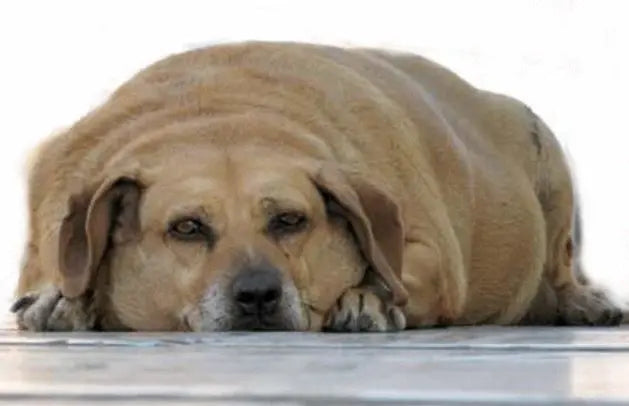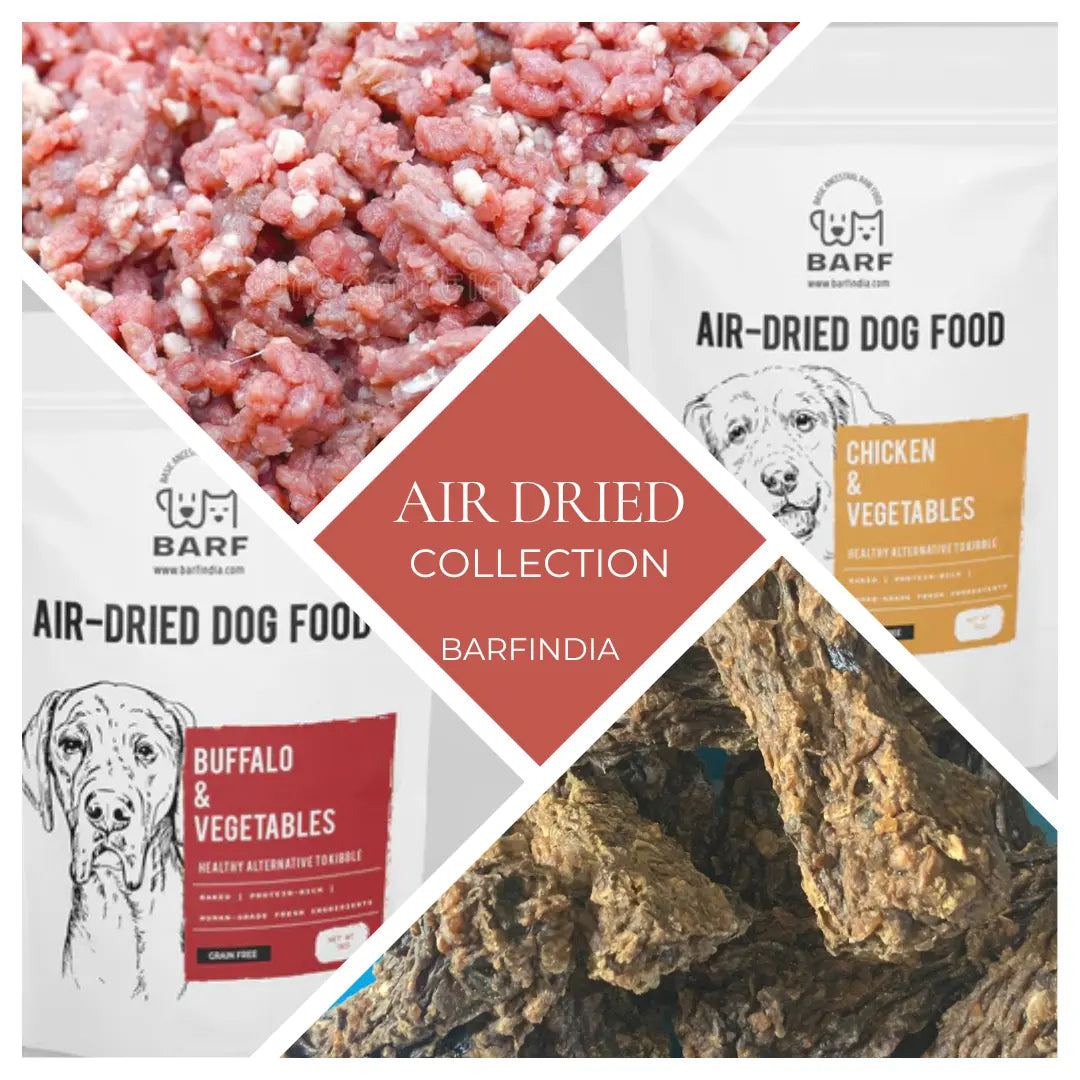
Is your dog overweight?
B.A.R.F. India AdministratorIs Your Dog Overweight? Signs and What to Do Next
Dog overweight concerns have quietly increased during the pandemic, even as we humans focus more on our own health. We’re watching what we eat, exercising regularly, and investing in organic foods or home gym equipment to stay fit. But while we prioritize our own wellness, are we unintentionally neglecting our furry companions?
As routines changed and outdoor time reduced, many dogs have become less active—leading to weight gain. It's time we turn some of that health focus toward our pets too.
How is your dog doing? Could you be overfeeding him, or not taking him for enough walks? Being overweight can be just as unhealthy for dogs as it is for humans. An overweight dog can suffer from a range of lifestyle diseases, such as diabetes, arthritis and joint disorders, respiratory conditions, behavioral problems and even a shorter lifespan.
Just like us, dogs don’t become overweight overnight. Overeating and lack of exercise are the main culprits. And because it happens so slowly, oftentimes we don’t even realise it. However, if you keep a check on your dog, you can prevent this from happening.
Common Reasons Why Your Dog May Be Overweight
Other than being obviously massive, what other signs are there that will tell me that my dog is overweight? Here are 7 signs to pay attention to when it comes to your dog’s weight and health.
1. Check his weight
Of course, dogs come in all kinds of shapes and sizes, and there’s no one size fits all. Whether you suspect your dog is overweight or not, checking his weight regularly is a good idea. Weigh your dog and then check your dog’s ideal weight according to his breed. Any number that is 5-19% more than what he should ideally be means he is overweight. Slight changes in his diet and adding more exercise to his routine should do the trick and get his numbers within the ideal range. If he is 20% heavier than normal, you might need to work harder. Consult your vet and arrive at a recommended diet and routine for him. In your attempts at helping him you shouldn’t cause him more harm.
2.Can you feel his ribs?
If you don’t have weighing scales, another way to determine if your dog is overweight or not is to do the rib test. Run your hands from his flanks towards his abdomen. If your dog is at an ideal weight, you should be able to feel the ribs (if you can see them then your dog is skinny and needs more food). If you can’t feel them then your dog has been accumulating fat over the years which needs to be shed. Consider changing his diet and getting him to exercise.
3. Is the abdomen prominent?
When you look at your dog from the side, you should see a wider chest and a thinner abdomen. Look for an abdominal tuck. If the abdomen is prominent or the body shape is like a tube, then you can be certain your dog is overweight.
4. Look for an hourglass shape
When your dog is standing, look at him from above. You should be able to see a distinct waist, with a wider chest and wider hips - the hourglass shape. If the figure is straight or the waist is thicker then it’s time to work on improving your dog’s health.
5. Reduced interest in physical activities
Do you remember when your dog used to be a bundle of energy, exhausting you with his antics and getting into mischief all the time? Of course, he might have been younger then. Now he seems to prefer to snooze on the sofa all day. Could it be because of age or possibly his increased weight? If you’ve noticed a reduced interest in physical activity it could be because your dog is overweight, and carrying all that weight around can be pretty exhausting even for a dog.
6. Loss of stamina
Let’s say your dog still wants to play and be active, but maybe he loses steam quickly. If he is still active but doesn’t play as much or run as fast as before or sits down panting in the middle of a game, then you might want to check his weight. All the extra weight that he has put on needs to be carried by his muscles, has to be fed by his blood, and maintained by his heart.
7. Not climbing higher floors
Earlier your dog would follow you around the house even when it meant going up the stairs countless times a day. Now if your dog chooses to sleep it out on the couch instead of accompanying you, or it takes him more effort to jump on the sofa, maybe he is overweight.
Get him to drop his excessive weight and he will become the same enthusiastic furball that he always was. If your dog shows any or a few of these signs, you need to take remedial steps. It’s never too late, and even the smallest change in weight can mean immense benefits.
Consult your veterinarian before you make any changes in his food portions though. Take him for longer regular walks. Why just your dog, even you will benefit from all the walking and you will see it build your energy and stamina too. Two birds in one stone, what say?



